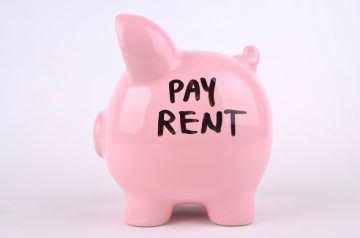Buy-to-let investors not put off by stamp duty rise
Another new piece of analysis has found that the upcoming changes in stamp duty will fail to deter buy-to-let investors as initially planned.
Analysis from Jackson-Stops & Staff suggests that after the buy-to-let rush to beat the surcharge passes, investors will be assisted by property price inflation. The firm suggests that house price rises over the next year will more or less compensate for the increased stamp duty bill.
Losers
Worryingly, the research predicts that the largest losers as a result of the changes will be tenants, as landlords put rents up to deal with increases in tax.
For example, should property prices carry on growing at their present rate in the South East, the capital gain on an average property will be £28,412 per year. Total stamp duty on purchases of an average home will be £11,328.
Separate data from the Association of Residential Letting Agents (ARLA) shows that the majority of landlords keep hold of their investment property for more than one year. Data from the ARLA report shows that 33% of landlords keep their property for 11-20 years and for an average of 20.3 years. This suggests that the majority of landlords will benefit from the positive impact of house price growth in the long term.
Positive outlook
Nick Leeming, Chairman at Jack-Stops & Staff, noted, ‘the Government, through its new stamp duty surcharge, is trying to make the playing field more even between property investors and first-time buyers by eating into landlords’ profits.’ Leeming said that his advice for landlords was, ‘when you do the sums and look at the direction of house prices, placing money in bricks and mortar is still by far the best investment vehicle.’[1]
‘If property prices continue on their current trajectory, within a year or less of buying their investment property the vast majority of landlords would have earned back all the money given through stamp duty, even with the new 3% surcharge, by doing nothing at all. Therefore, the idea that the stamp duty tax will act as a deterrent is a fiction, as for most landlords, it won’t amount to a significant figure,’ Leeming continued.[1]
Leeming feels that, ‘the only losers will be tenants as landlords as likely to pass on any additional costs they might not want to shoulder to their tenants by increasing rents.’ He fears, ‘this could mean that those currently in rented accommodation who are saving for a deposit to buy a home, take even longer to pull this money together.’[1]

Buy-to-let investors not put off by stamp duty rise
Regional concern
It is estimated that in eight out of ten regions, buy-to-let investors will find capital gain will negate all stamp duty costs. However, this is not the case in the North East and North West of Britain.
Leeming noted, ‘the North East and North West regions of the UK, where house price growth is more restrained at present, are the only regions where landlords will find capital growth in the first year does not eclipse the new stamp duty they would have to pay. These two regions are also the only two where home owners currently pay no stamp duty on the average home as the average property price still remains under £125,000, the price level where stamp duty first bites.’[1]
Concluding, Mr Leeming said, ‘tenants here are more likely to see landlords in future pass on this additional cost via rent and we also anticipate investors to be more assertive when they negotiate on buying a home, which will be reflected in lower offers.’[1]
[1] http://www.propertyreporter.co.uk/landlords/btl-investors-undeterred-by-stamp-duty-changes-claims-new-analysis.html







